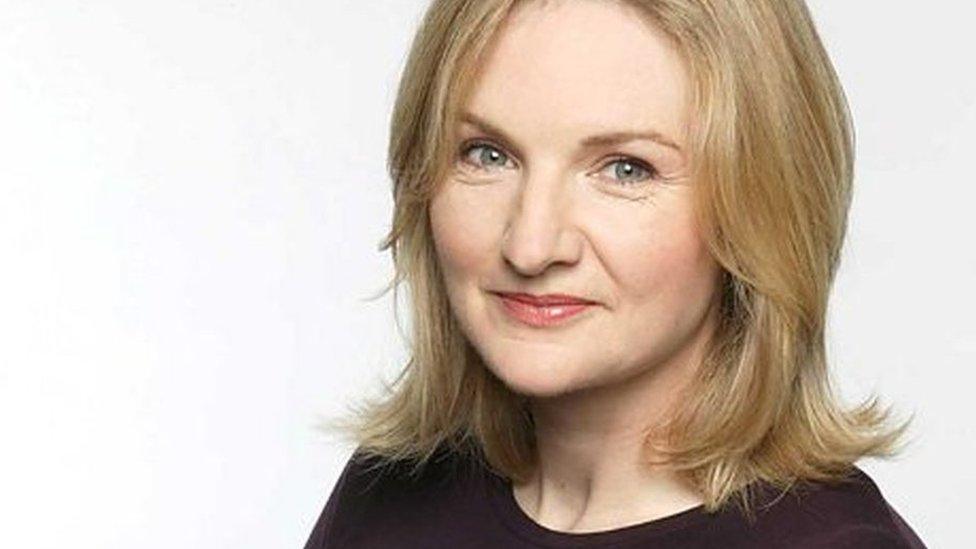Alzheimer's: Adjusting to being your parent's parent
- Published
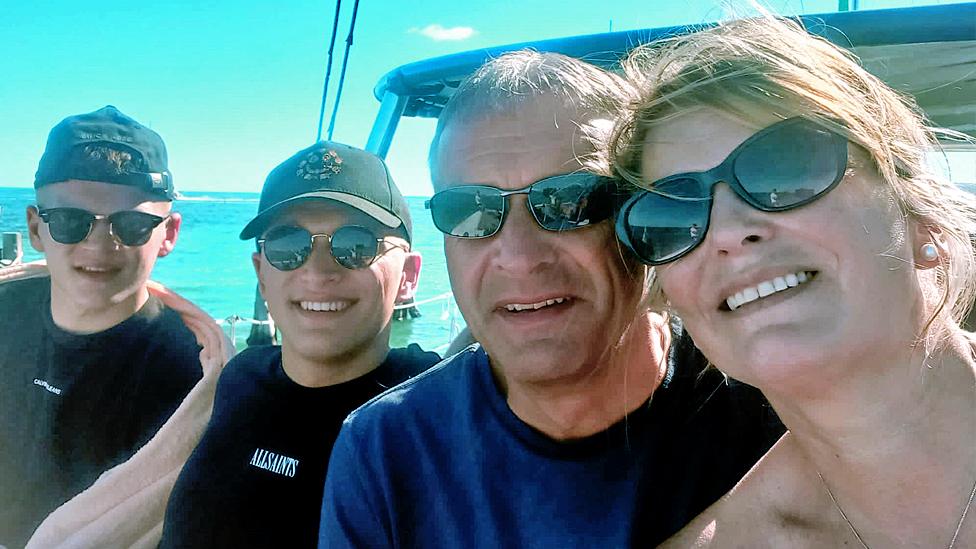
Simon Ruscoe's family initially put his strange behaviour down to work stress
It's traditionally a disease associated with the elderly. But when their father was diagnosed with early on-set Alzheimer's aged just 55, two young brothers made lifestyle changes and revised career ambitions to help with his care. So what is it like becoming your parent's parent?
When Simon Ruscoe started acting strangely in 2015, it was initially put down to work stress.
The hands-on, active husband and father was increasingly starting to forget things and get words muddled. He forgot directions.
After many years of probing, his family eventually learnt he had early on-set Alzheimer's in 2020.
In October that year, he left his job as an IT service delivery manager and the family's life changed dramatically.
"When I first found out my dad had Alzheimer's, I kept it to myself," said Simon's youngest son Oliver, 21.
"I didn't want people to feel sorry for me."
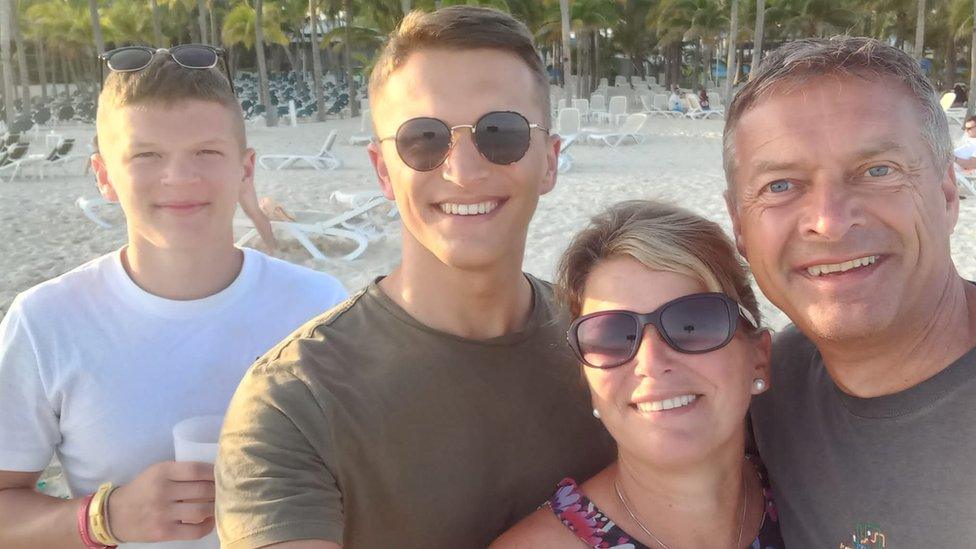
His family learnt he had early on-set Alzheimer's in 2020
As their father's condition deteriorated, Oliver and his brother Alex, 26, had to take on more care responsibilities as everything from eating to getting dressed became a challenge.
"The most basic tasks are the most straining," said Oliver.
"We have to make sure he has sun cream on, when he goes to the bar we have to make sure he gets the right drink, we have to get his food for him."
Alex, who had moved out but moved back home after the diagnosis, added: "If you put out a clean pair of clothes for him, he will put the dirty clothes back on.
"You have to ask him when he needs to go to the toilet.
"Sometimes he'll be fidgeting and you can tell there's something not quite right but he hasn't got the ability to tell you."
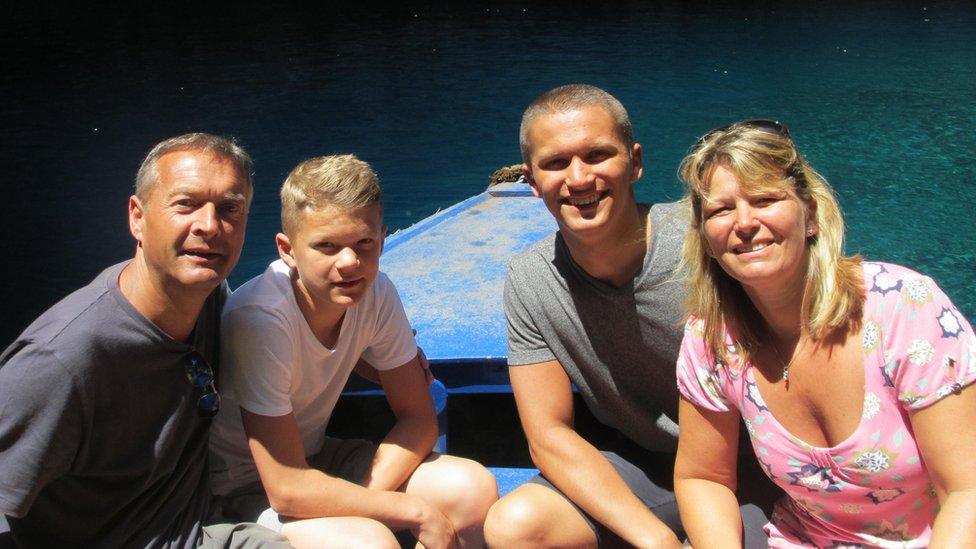
His sons have adjusted their social lives including holidays to help care for their father
Career sacrifices and adjustments have also been made by the brothers.
Alex, a full time civil servant, became a registered carer and reduced his days in the office.
Oliver, a part time supermarket assistant who wants to be a train driver, stopped considering jobs away from their home in Solihull, West Midlands.
They have also adjusted their social lives - choosing family holidays over trips with friends and bringing their father when they go to the pub or friends' houses.
A care rota was introduced so their mother, Emma, could have downtime too.
"Oliver and Alex have been absolutely unbelievable," said Emma, who works in adult social care at Solihull Council alongside caring for her husband.
"I wouldn't be able to have Simon at home without their support. I wouldn't cope. I don't know how people do it without support from family.
"I am so incredibly proud."
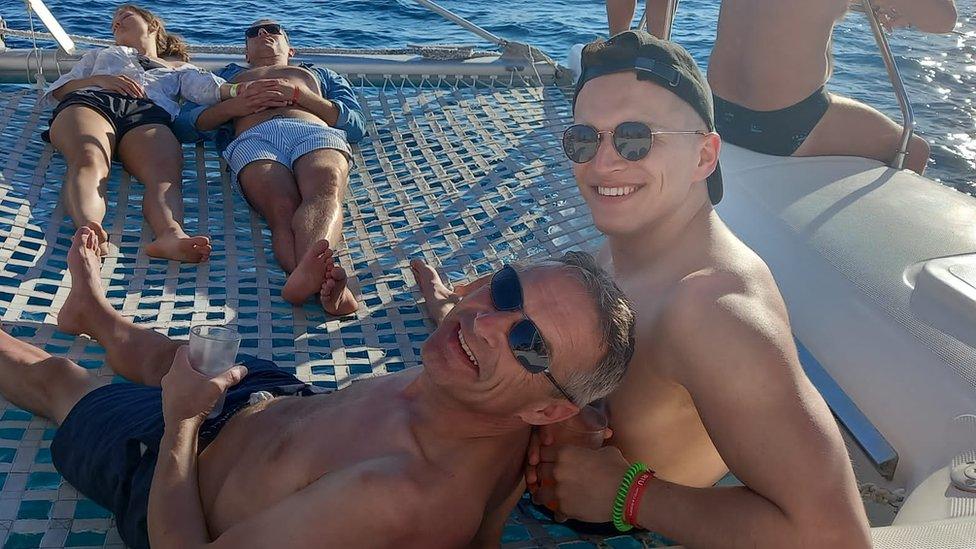
Mr Ruscoe's sons have made sacrifices to their careers in order to care for their father
The brothers said it was "mentally draining" seeing their father unable to complete basic activities.
But they want to pay him back for being "a brilliant dad" when they were younger.
And, despite the challenges, they said it had brought the family, who are supported by the Alzheimer's Society, external, closer together.
"We are just so grateful he is with us and he's happy," said Oliver.
Alex said: "I know some people my age and their parents aren't around, so I've got to be grateful for the fact he is here.
"Obviously there is that diminishing capability but I'll take him any day at 50%, 75% - whatever I can get."

Follow BBC West Midlands on Facebook, external, Twitter, external and Instagram, external. Send your story ideas to: newsonline.westmidlands@bbc.co.uk, external
Related topics
- Published3 May 2023

- Published23 April 2023
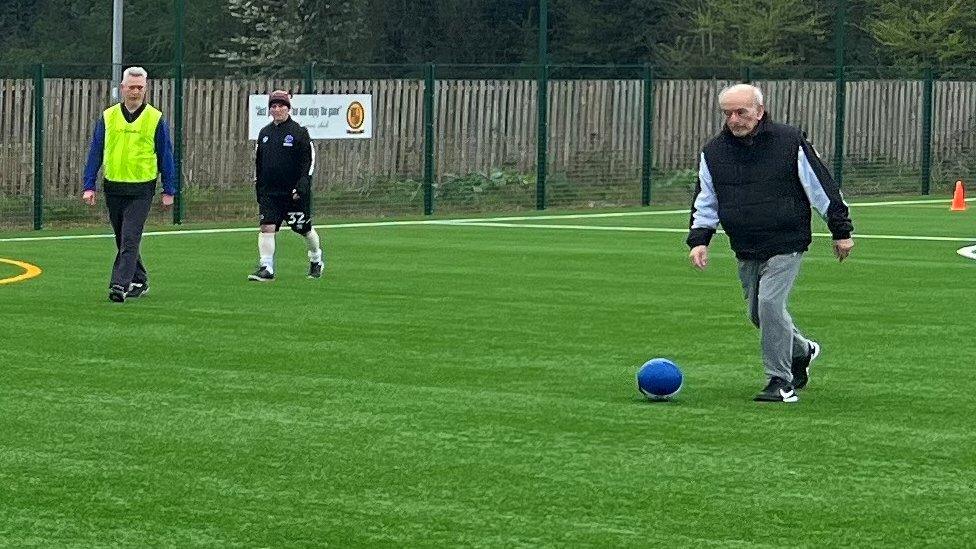
- Published12 April 2023
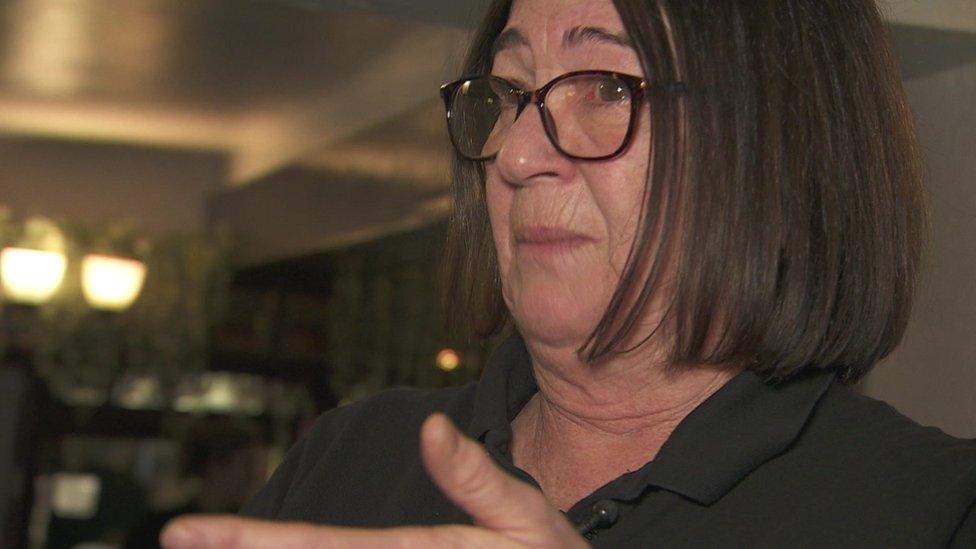
- Published2 April 2023
